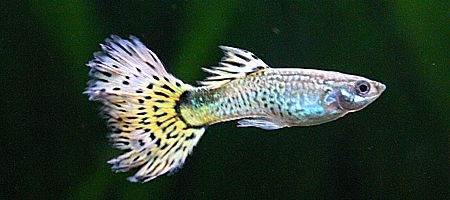It’s long been suspected that having a big brain isn’t necessarily an evolutionary advantage. Now, scientists have come up with experimental evidence for this view, by breeding a strain of big-brained guppies.

The findings support the theory that bigger brains do bring increased cognitive ability – not as obvious as it might at first appear. But these bigger brains, it seems, use up a lot of the body’s resources, and don’t necessarily lead to a breeding advantage.
“We provide the first experimental evidence that evolving a larger brain really is costly in terms of both gut investment and, more importantly, reproductive output,” says Niclas Kolm of Uppsala University in Sweden.
The findings support the idea that relative brain sizes among species are the result of a trade-off between increased cognitive ability and the energy costs of a big brain.
“The human brain only makes up 2 percent of our total body mass but stands for 20 percent of our total energy demand,” says Kolm. “It is a remarkably costly organ energetically.”
Kolm’s team selected live-bearing guppies for large and small brains relative to the size of their bodies – and found that brain size could evolve remarkably quickly.
Large-brained guppies did turn out to be brighter, outscoring the others in a test of numerical learning. And with more energy devoted to brain-building, brainy fish — males especially — did have smaller guts. They also left fewer offspring to the next generation.
Interestingly, this was the case despite the fact that the fish were given more than enough food – and the researchers say they now plan to test fish in a more competitive, semi-natural environment including limited resources and predators.
They suggest that the relatively small family sizes of humans and other primates, as well as dolphins and whales, may have helped to make our big brains possible.






